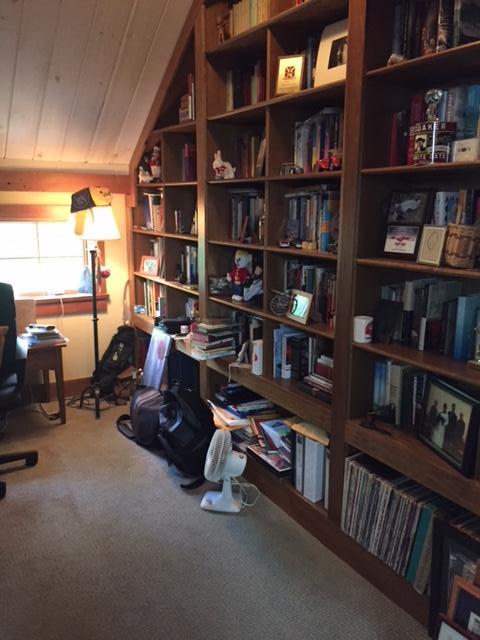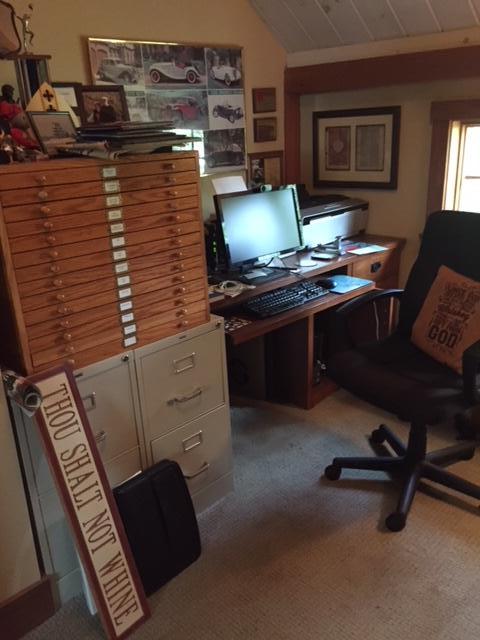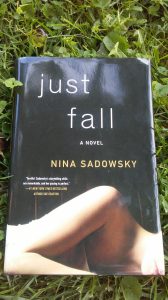That’s the question J. Brent Bill will discuss in his hands-on, small class session on Friday morning at MWW’s Super Mini-conference:
Writing from the Heart: Soulful Creativity – That’s the kind of writing that makes Anne Lamott’s essays, Phil Gulley’s Harmony tales, and Barbara Brown Taylor’s memoirs so appealing. Brent Bill’s own writing has been described by Publishers Weekly as being “Like a neighborly conversation across a kitchen table.” Whether you are writing fiction or nonfiction, you want to write from the heart and not just from the head. This workshop offers tips and techniques for connecting with your writer’s heart and how to put your heart on paper. You will spend time writing, using exercises that will help you uncover the deep themes and concerns that will bring your writing to life. Brent will also look at the practical side of getting such writing published.
With more than twenty books published since 1983, Brent has learned a thing or three about writing. His titles include Life Lessons from a Bad Quaker: A Humble Stumble Toward Simplicity and Grace, Sacred Compass: The Way of Spiritual Discernment; and Holy Silence: The Gift of Quaker Spirituality. He’s also a writing coach, editor, photographer, and retreat leader. A MWW alumnus, Brent lives on Ploughshares Farm – fifty acres of Indiana farmland being reclaimed for native hardwood forests and warm season prairie grasses.
Former MWW intern Amanda Byk asked Brent a few interview questions to help us learn more about him as a writer and faculty member.
MWW: How do you get yourself psyched up for a writing session? Music? Meditation? Crossword puzzle? A full tank of high-octane coffee? Yoga? Or do you just sit down at the computer and have at it? Advice?
JBB: My intention is always to just sit down and get to it. But the truth is I usually spend time checking email and Facebook, going for a fresh glass of ice water, doing some “research” on Google, and the like. The typical writer’s procrastination tools. When I do start writing, I usually write one or two hours straight without much deviating from the actual writing. Having a deadline helps me focus and get right down to the task of writing without having to check email, play solitaire, and so forth.
MWW: Describe for me your “writing space.” Messy? What books are within arm’s reach? Laptop or desktop? Dedicated office, spare bedroom or dining room table?

 JBB: I have a dedicated writing office on the second floor of our post and beam home. It has a window overlooking the woods and prairie. Floor to ceiling bookshelves line one wall — stuffed with everything including poetry, humor, religion, books on writing, autographed copies of books, books by friends, miscellaneous nonfiction, miscellaneous fiction, photography books, and more. The other long walls hold two file cabinets, a map chest (where I store my writing and photographic paper and photographic prints), and an oversize desk containing my computer, monitor, two printers, an external hard drive, and a scanner. The walls hold various art pieces, photographs I’ve taken, framed book covers, and other miscellany. In addition to books, the bookshelves also contain such arcane things as Old Quaker Whisky bottles, models of MGs and other cars I’ve owned, Mr. Bill figurines, and fighting Quaker puppet, and other silliness.
JBB: I have a dedicated writing office on the second floor of our post and beam home. It has a window overlooking the woods and prairie. Floor to ceiling bookshelves line one wall — stuffed with everything including poetry, humor, religion, books on writing, autographed copies of books, books by friends, miscellaneous nonfiction, miscellaneous fiction, photography books, and more. The other long walls hold two file cabinets, a map chest (where I store my writing and photographic paper and photographic prints), and an oversize desk containing my computer, monitor, two printers, an external hard drive, and a scanner. The walls hold various art pieces, photographs I’ve taken, framed book covers, and other miscellany. In addition to books, the bookshelves also contain such arcane things as Old Quaker Whisky bottles, models of MGs and other cars I’ve owned, Mr. Bill figurines, and fighting Quaker puppet, and other silliness.
MWW: When you hit the wall and nothing is working on your computer screen, how do you clear your head and refresh? Do you power down and go to a movie, or do you just keep pounding the keys? Advice?
JBB: This rarely happens to me. Once I’m in the flow, the words and sentences usually come easily. On those occasions where I’m stuck, I will either go for a walk in our woods and think or I’ll fire up the John Deere 790 and go do some farm work. Certain farm chores involving the tractor allow me to work on two planes at the same time — one paying attention to the tractor work and the other allowing my mind to problem solve my writing issue. They’re both work, but call for solutions from different parts of my brain. My family jokes that I write some of my best stuff whilst on the tractor.
MWW: For writers who are unsure about which classes to attend at the July Super Mini-conference, what criteria should they use in making their choices?
JBB: One obvious piece of advice is to attend a workshop that most closely aligns with the kind of writing you want to do. A second, and I think just as valuable, is to sign up for a workshop completely outside of your primary interest. I did that when I signed up for my first MWW conference in the late 1980s — a poetry workshop. I like poetry, but had no intention of writing any poetry. The instructor, Mary Brown, was insightful and her exercises and information on writing poetry were very helpful to my writing (and by then I’d written six books). The lessons I learned in that class took my writing deeper in ways that I doubt any other course could have.
MWW: Can you tell us more about what your Friday session will be about? What can writers expect to come away with from it?
JBB: There’s been an explosion in spiritual writing of late. While the number of mainstream Christian periodicals has declined, new publications have sprung up. My own spiritual writing has appeared in places as diverse as Quaker magazines, AARP: The Magazine, and Sufi Journal. In this workshop, we’ll spend some talking about the kind of spiritual writing participants want to do and then look at possible outlets that would fit their writing.
Come meet Brent!
To register for MWW Super-Mini, go to www.midwestwriters.org


